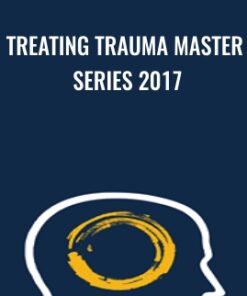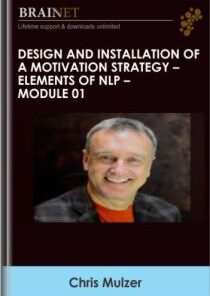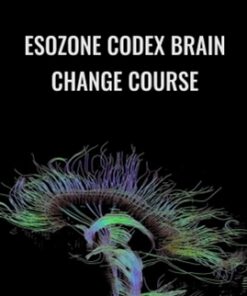-
×
 100 Brain-Changing Mindfulness Techniques to Integrate Into Your Clinical Practice - Debra Burdick
4 × $84.00
100 Brain-Changing Mindfulness Techniques to Integrate Into Your Clinical Practice - Debra Burdick
4 × $84.00 -
×
 Annie Cushing - Annielytics Dashboard Course
1 × $89.00
Annie Cushing - Annielytics Dashboard Course
1 × $89.00 -
×
 2-Day Certificate Course: Treating Trauma in Intimate Relationships - Healing the Trauma Legacy in Couples Therapy - Janina Fisher
4 × $124.00
2-Day Certificate Course: Treating Trauma in Intimate Relationships - Healing the Trauma Legacy in Couples Therapy - Janina Fisher
4 × $124.00 -
×
 Lisa McElmurry - Lucrative Launch Blueprint
1 × $43.00
Lisa McElmurry - Lucrative Launch Blueprint
1 × $43.00 -
×
 Treating Trauma Master Series 2017 - NICABM
2 × $18.00
Treating Trauma Master Series 2017 - NICABM
2 × $18.00 -
×
 Managing Patient Emergencies - Robin Gilbert
1 × $85.00
Managing Patient Emergencies - Robin Gilbert
1 × $85.00 -
×
 Legal Risks in Nursing Documentation – Use Extreme Caution When Skimming the Facts - Rosale Lobo
1 × $40.00
Legal Risks in Nursing Documentation – Use Extreme Caution When Skimming the Facts - Rosale Lobo
1 × $40.00 -
×
 10x Launches - Copy hacker - Ry Schwartz
1 × $92.00
10x Launches - Copy hacker - Ry Schwartz
1 × $92.00 -
×
 Upgrade your productivity - Entheos Academy (VA)
1 × $25.00
Upgrade your productivity - Entheos Academy (VA)
1 × $25.00 -
×
 'Quantum' Chakra Clearing and Balancing Series - Jonette Crowley
1 × $52.00
'Quantum' Chakra Clearing and Balancing Series - Jonette Crowley
1 × $52.00 -
×
 Now Healing – Healing “Problem” Body Part - Elma Mayer"
1 × $74.00
Now Healing – Healing “Problem” Body Part - Elma Mayer"
1 × $74.00 -
×
 Design and Installation of a Motivation Strategy – Elements of NLP – Module 01 - Chris Mulzer
1 × $59.00
Design and Installation of a Motivation Strategy – Elements of NLP – Module 01 - Chris Mulzer
1 × $59.00 -
×
 Tai Chi Chin Na - Yang Jwing Ming
1 × $33.00
Tai Chi Chin Na - Yang Jwing Ming
1 × $33.00 -
×
 Emerging Adults: Clinical Strategies to Gain Independence, Defeat Anxiety and Succeed in the Real World - Kimberly Morrow & Elizabeth DuPont Spencer
1 × $34.00
Emerging Adults: Clinical Strategies to Gain Independence, Defeat Anxiety and Succeed in the Real World - Kimberly Morrow & Elizabeth DuPont Spencer
1 × $34.00 -
×
 2-Day: Rapid Response: Master the Critical Signs and Symptoms that Patients Provide - Rachel Cartwright-Vanzant
1 × $95.00
2-Day: Rapid Response: Master the Critical Signs and Symptoms that Patients Provide - Rachel Cartwright-Vanzant
1 × $95.00 -
×
 Esozone Codex Brain Change Course - Command Z
1 × $33.00
Esozone Codex Brain Change Course - Command Z
1 × $33.00 -
×
 Erik Paulson's Greatest Hits - Erik Paulson
1 × $18.00
Erik Paulson's Greatest Hits - Erik Paulson
1 × $18.00 -
×
 30-Day Affiliate Marketing Challenge Training - Jaiden Gross
1 × $45.00
30-Day Affiliate Marketing Challenge Training - Jaiden Gross
1 × $45.00 -
×
 4X Cash Compounder
1 × $30.00
4X Cash Compounder
1 × $30.00 -
×
 12 Minute Stage Crazy - Body of a Rock Star
1 × $22.00
12 Minute Stage Crazy - Body of a Rock Star
1 × $22.00 -
×
 Deep Resonating Aums - Higher Balance Institute
1 × $15.00
Deep Resonating Aums - Higher Balance Institute
1 × $15.00 -
×
 2-Day All Things Pulmonary - Cyndi Zarbano
1 × $125.00
2-Day All Things Pulmonary - Cyndi Zarbano
1 × $125.00
You may be interested in…
-
Add
 Command Z - Esozone Codex Brain Change Course
Command Z - Esozone Codex Brain Change Course
$97.00Original price was: $97.00.$42.00Current price is: $42.00. -
Add
 0-6 Pack Abs Phase 1 &2 - Tyler Bramlett
0-6 Pack Abs Phase 1 &2 - Tyler Bramlett
$39.00Original price was: $39.00.$17.00Current price is: $17.00. -
Add
 "Fix My Job" binaural mantra meditation for attracting work you love - Michael Davis Golzmane
"Fix My Job" binaural mantra meditation for attracting work you love - Michael Davis Golzmane
$20.00Original price was: $20.00.$17.00Current price is: $17.00. -
Add
 10 Best-Ever Anxiety Treatment Techniques - Margaret Wehrenberg
10 Best-Ever Anxiety Treatment Techniques - Margaret Wehrenberg
$399.99Original price was: $399.99.$164.00Current price is: $164.00. -
Add
 10 Steps to Greater Confidence and Self-Esteem - Alexis Meads
10 Steps to Greater Confidence and Self-Esteem - Alexis Meads
$98.00Original price was: $98.00.$42.00Current price is: $42.00.